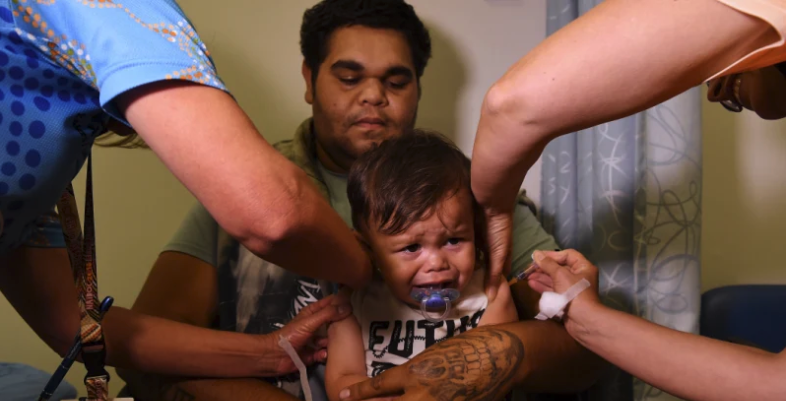Heal the Man and the Family Wins: Closing the Healthcare Gap in Australia

Heal the Man and the Family Wins: Closing the Healthcare Gap in Australia
If you get sick or injured in Australia, you are in good hands. Australia continues to score highly when it comes to health care, and is consistently ranked among some of the world's best health care systems, thanks to high-quality infrastructure and some of the best doctors in the world.
But there is a problem; a discrepancy which deeply tarnishes the reputation Australia has built as one of the world leaders in medicine and care.
For Aboriginal and Torres Strait Islander peoples, access to health care and the proper advice and treatment is a necessity, just as it is for people from any background or group. However, there is a distinct division between some Indigenous groups, and the medicine and health care which should be a human right for all.
The work carried out by the Tharawal Aboriginal Corporation's Aboriginal Medical Service near Campbeltown is certainly helping to close this gap. The team provide diagnosis and treatment to the local community, covering a wide variety of different conditions, ranging from the minor, right through to the potentially lethal. However, the findings reported by this group are worrying.
Medical practitioners at the service are discovering that many patients are not aware of their potential serious illnesses - such as cancers, heart defects, and dangerously high blood pressure - until the condition is already advanced. This lack of early diagnosis and the timely beginning of a treatment course could be putting lives at risk. The Tharawal medical service team believe this is because many patients who really need assistance are not accessing the medical facilities they require at the right time.
Preventable illnesses are also at a higher level than they should be within some communities, rates which can be blamed on a lack of immunisation. In many Indigenous communities around Australia, it is estimated that between 60% and 79% of children aged from one to three are immunised. At the Tharawal community in Campbeltown, this level is now between 90% and 97% - higher than in many city suburbs. This step of increasing the rate of immunisation and vaccination is critical if we are to close the health care gap in this country, and the work carried out by the team at Tharawal medical service in Campbeltown demonstrate what can be achieved. However, there are other factors which make closing this gap difficult.
Eddie Burge, a local elder, was diagnosed with high blood pressure by the centre. He also described how friends of his tested positive for other serious conditions like bowel cancer or a weak heart. Until the development of the centre at the Tharawal community, local men did not get the health care they needed, and were far less likely to travel to visit a doctor than the females of the community were. This opposition between the men of Indigenous communities, and the healthcare structures which should be serving their needs is leading to too many people losing their lives, and too many families losing a member.
"Heal the man, and the family wins," Mr Burge told the Sydney Morning Herald. "Heal the family and the community wins."
Closing the gap begins with small victories - victories on a personal, human level. Heal someone's father, son, brother, or husband, and you keep that family together. Keep one family together, and you have a positive, engaged, and active unit within the community; a unit which will work to bring about the changes our society needs if we are to move forward. Just like Mr Burge says, what begins with the healing of one man, blossoms into something broadly positive for the whole community.
Margaret Bell, AM - Founder and CEO of Chain Reaction Foundation.
| Website | Donate to our Purple Heart Appeal | Contact Us | Purchase the Book |
